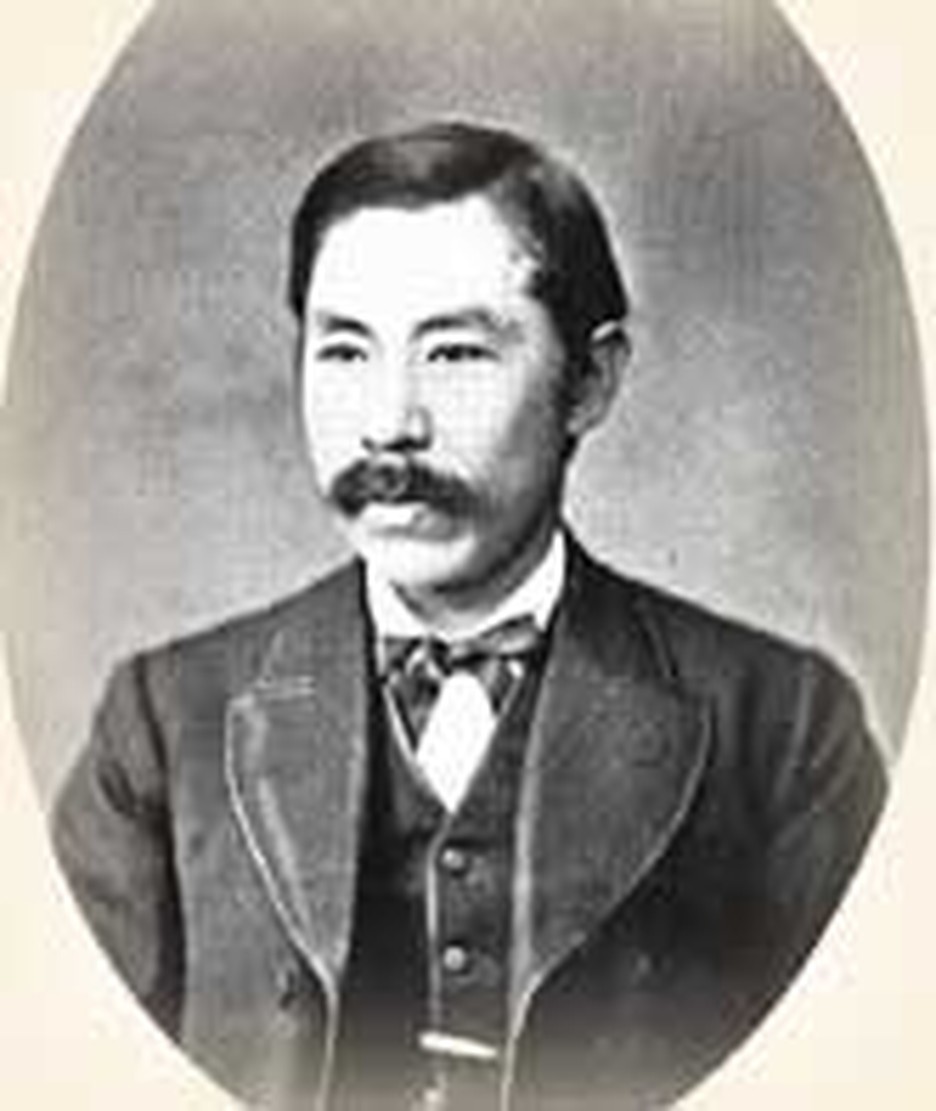
Japan remains one of the great mission fields for the Christian Gospel. Although many Japanese have great admiration for Jesus Christ, only 1% of the 125 million population is in Christian churches.
But seeds have been sown. One of the most notable efforts came from a young Japanese man over 100 years ago. Neesima Shimeta was born February 12, 1843 in Tokyo. In his youth, Japan was still closed off from the rest of the world, but changes were afoot. Admiral Perry arrived in Japan when Neesima was ten, and Japan began negotiating commercial treaties with foreign countries when he was in his mid-teens. Yet, Neesima's knowledge of the world beyond Japan's borders was limited. He first learned of the United States through books in Chinese written by missionaries to China. For the first time he heard of Christianity and a Biblical view of the world. He greatly admired what he read about the United States and wanted the Japanese to enjoy similar liberties. He wanted to go to America to learn more, but going abroad was then a capital offense. Neesima planned a way of escape, however.
In 1864, when he was 21, he went to Hakodate, a port in the far north of Japan which was open to foreigners. He obtained favor with Nicholai, chaplain of the Russian consulate there, and helped Nicholai learn Japanese. Nicholai later became the founder of the Russian Orthodox Church in Japan. When Neesima saw the great immorality in Hakodate, he concluded that Japan needed a great moral change. He hoped to find the key to this in the United States. He boarded an American ship to Shanghai. There he persuaded another American captain to take him to the United States. The captain treated Neesima kindly, teaching him English and navigation while he worked as a cabin boy. When the ship stopped in Hong Kong, Neesima sold his samurai sword to obtain money for a Chinese New Testament. He didn't understand everything he read, but the words of John 3:16 made a strong impression on his soul.
Neesima reached Boston in 1865. He had no idea how he was to learn more about the God and United States he had read about in the missionary writings. But from reading Robinson Crusoe he had learned about praying to God. Neesima prayed that God would direct him. Alpheus Hardy, a wealthy businessman and owner of the ship which brought Neesima to America, began to take a strong interest in the young man. Hardy paid his way through Phillips Academy, Amherst College, and Andover Theological Seminary. While at Phillips Academy, Neesima was converted to Christianity and baptized.
Jo, a Joseph for Japan
The captain who had brought Neesima to America had called him Jo. Alpheus
Hardy told Neesima that could be short for Joseph, and Neesima was to
be like the Biblical Joseph to his people, exiled and preserved in a foreign
land so he might later bring them the word of life. Neesima later took
Hardy's name as a tribute to his kindness to him.
Neesima had a strong burden for his Japanese homeland. He longed to see Japan a Christian nation. Changes were sweeping across Japan - the western calendar was adopted, railroads built, an army and navy developed along western lines. The leaders of this new Japan were from the elite samurai class, and Neesima believed Christianity would become accepted most rapidly among the people if first adopted by the prestigious samurais. This group could best be reached through Christian schools.
Jo Won't Go If You Say "No!"
At the 1874 annual meeting of the American Board of Commissioners of Foreign
Missions, Neesima was commissioned to return to Japan as a missionary.
With great emotion he arose and said, "I cannot go back to Japan
without the money to found a Christian college, and I am going to stand
here until I get it." Despite the considerable skepticism of his
American friends almost $5,000 was raised to carry out Neesima's dream.
Once back in Japan, Neesima found that his father, family, and the people from many surrounding towns were eager to hear of Christianity. The prominence of Neesima's family and the uniqueness of his experiences abroad attracted much attention. In June, 1875, Neesima bought 5 1/2 acres of land in Kyoto, not far from the imperial palace, for a school. He called it Doshisha, meaning the one endeavor or the one purpose company. It was a purely Japanese association with no foreigners in its administration.
Foundation of Leadership
Soon thirty young samurai from Kumamoto on the island of Kyushu entered
the school. These young men had become Christians under an American who
had been instructing them in English and in western science. They studied
at Doshisha for three years, and many went on to become the Christian
leaders of Japan.
Neesima envisioned Doshisha as a university with strong Christian commitments. He believed a foundation of Christian morality was necessary for Japanese civilization to advance. Ill health and weakness plagued Neesima and slowed the implementation of his plans. In 1884 he went to Europe and America for rest and recuperation. Even then, however, he worked for the christianization of Japan -- aiding a Christian newspaper in Tokyo, founding a medical school connected with Doshisha, raising money for Doshisha's library and medical school, and arranging for some of the Japanese teachers to study in America. When not yet forty-seven, on January 23, 1890, Joseph Hardy Neesima breathed his last. His final words -- "peace, joy, heaven."
Outcomes |








